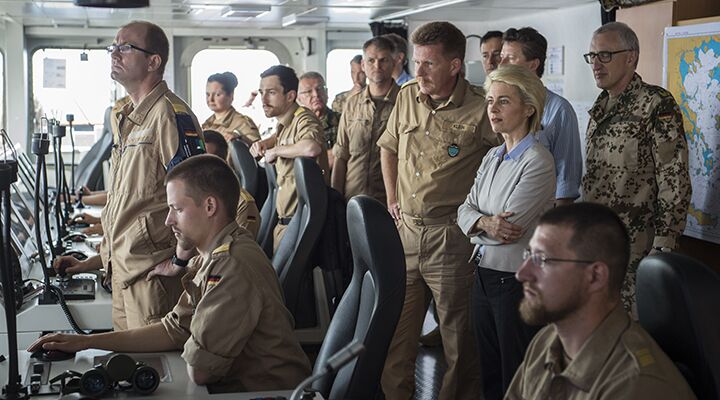
President Obama Wants NATO to Stop Libyan Refugees; Merkel Wants the EU
With the European Union-Turkey migrant deal stopping refugees from crossing from the Turkey-Greece border into Europe, officials are worried another route may become more popular—from Libya into Italy. During United States President Barack Obama’s visit to Germany on April 25, he offered the help of nato’s navy to shore up the Libya-Italy sea route. German Chancellor Angela Merkel rejected the offer: she wants it done under EU command.
President Obama’s meetings with European leaders last week included discussions on the migrant crisis and Islamist infiltration into Libya. Since the start of 2014, 350,000 people have sailed from Libya, hoping to reach the Italian coast.
Preparations for a naval blockade around Libya were already advanced, according to Italian Defense Minister Roberta Pinotti. A naval patrol has already been present in the Aegean Sea, sending back migrants who attempt the sea crossing between Turkey and Greece.
“Barack Obama said he was willing to commit nato assets to block the traffic in human beings and the people smugglers that we refer to as modern slavers,” Italian Prime Minister Matteo Renzi told reporters after the meeting.
In a press statement, Ms. Merkel recognized the offer but pointed to European cooperation instead.
“The U.S.A. is fully engaged and ready—in connection with the migration route from Libya to Italy—to share responsibility if necessary,” said Merkel. “However, we already have a European mission, EU navfor Med—also called [Operation] Sophia—which is working quite well.”
After further questioning, the chancellor indicated that no “concrete proposals” had been discussed with the U.S. about the blockade.
Merkel has been a lonely voice in Europe calling for continental cooperation in dealing with the migrant crisis. Trumpet executive editor Stephen Flurry pointed to this European cooperation in “Paris Attacks: A Milestone in European Unity,” after French President François Hollande invoked the EU’s collective defense clause for the first time ever in light of the 2015 Paris terrorist attacks.
Is it possible that nato may still end up providing some support for the Libyan naval blockade in the Mediterranean—no details have been confirmed. What is certain is that Merkel wants Europe to solve its problems together and, of course, with Germany leading the way.
